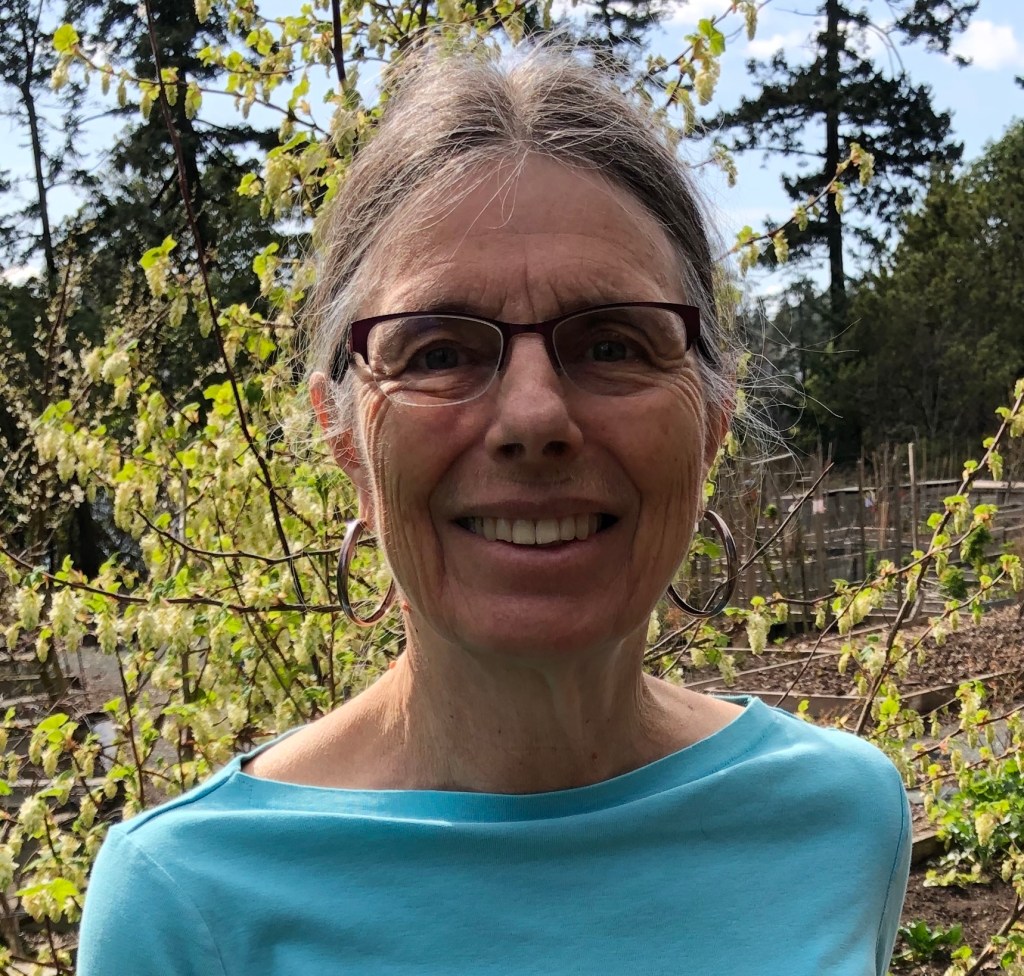
Denise Nadeau is an educator, scholar, and activist working at the intersection of somatic therapy, spiritual practice, decolonization, and racial justice. She is of mixed European heritage from Quebec and the author of the book Unsettling Spirit: A Journey into Decolonization, which is published by McGill-Queen’s University Press and won the Canadian Society for the Study of Religion 2021 Prize. She currently resides as a visitor in the traditional homelands of the WSÁNEĆ (Saanich) and lək̓ʷəŋən peoples (Songhees and Kosapsum) on Vancovuer Island.
Denise spent many years as a popular educator working with unions and community groups and is the author of Counting Our Victories: Popular Education and Organizing (1996: out of print). Her academic background and training was first in history (BA, UBC; M.LItt, St. Antony’s College, Oxford) and later in religion and ministry (MDiv, Vancouver School of Theology; DMin, San Francisco Theological Seminary). She has taught as an adjunct at UBC School of Social Work, Vancouver School of Theology, Simon Fraser University, Concordia School of Community and Public Affairs, and in the Religions and Cultures Department at Concordia University. Between 2006 and 2012 she was Acting Director of the Interfaith Institute for Justice, Peace, and Social Movements at Simon Fraser University. From 2012 to 2023 she was an Affiliate Assistant Professor in the Concordia Religions and Cultures Department.
Denise teaches and writes in the areas of Indigenous-settler relations, decolonization of the body, and the deconstruction of whiteness and colonialism in Christianity. Her activism focuses on Indigenous solidarity and Palestinian liberation.
As a somatic educator, dancer, and movement therapist, Denise has trained in expressive arts therapies, Body Mind Psychotherapy, and Relational Trauma Therapy. Between 2011 and 2017 she coordinated Moving with Spirit, a program on Vancouver Island that offered classes that combined spiritual practices with movement therapy. At present she is integrating somatic work into community education around anti-racism and decolonization.
Denise divides her time between Vancouver Island and Quebec.